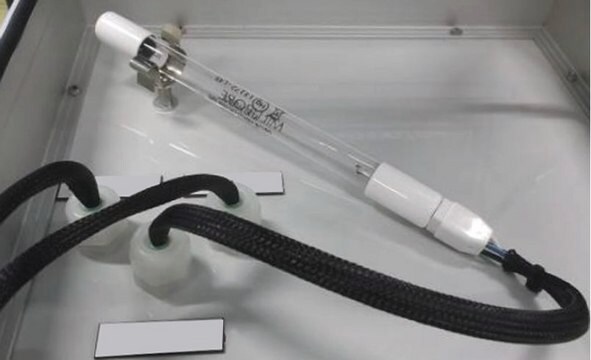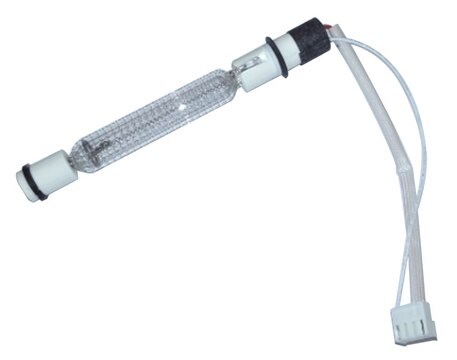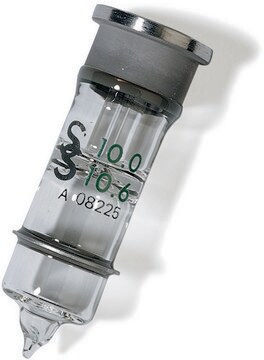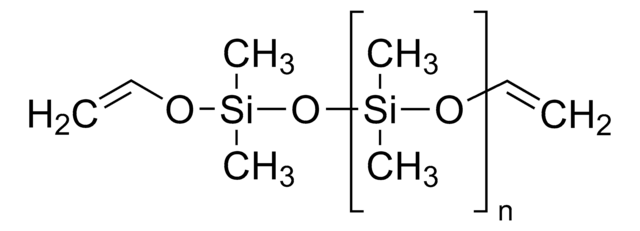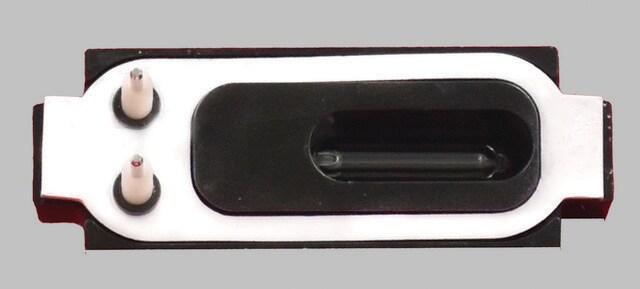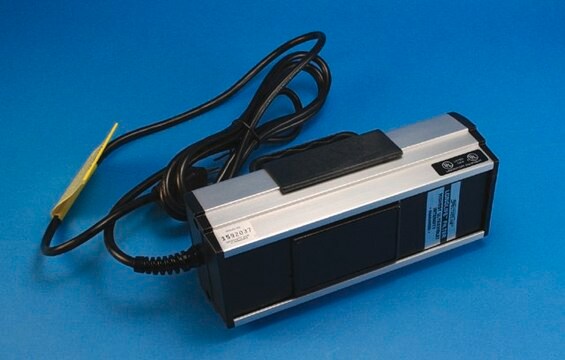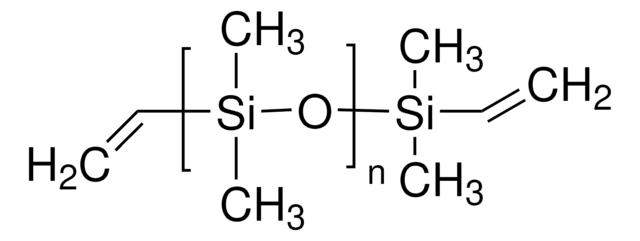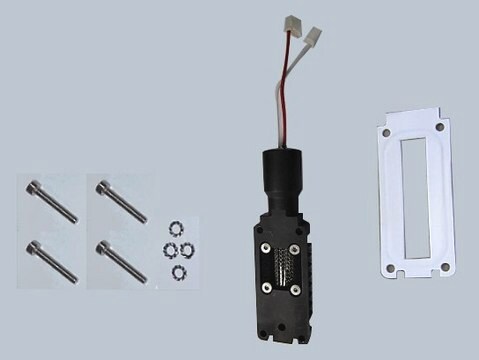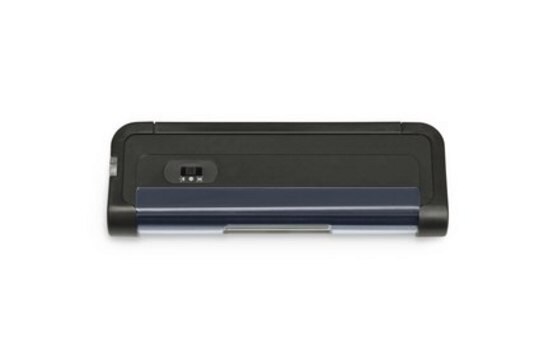22626
PID Lamp
Model 108, diam. 0.781 in., potential 10.0/10.6 eV
, krypton bulb gas
Autenticatiper visualizzare i prezzi riservati alla tua organizzazione & contrattuali
About This Item
Codice UNSPSC:
41115700
Prodotti consigliati
Materiali
krypton
Diametro
0.781 in.
Cerchi prodotti simili? Visita Guida al confronto tra prodotti
Descrizione generale
Photoionization detector is suitable to detect and measure the presence of organic vapours. PID lamps emit ultraviolet light to ionize organic vapour molecules. During ionization, free electrons are generated which produce a current proportional to the number of ions present and resulting signal is interpreted as total organic vapour concentration. The most popular PID lamp is the 10.2-eV which has the highest photon flux hence has high sensitivity.
We offer high quality PID lamps manufactured by Andrews Glass Co.
Model 108 is the most commonly used PID lamp. The 0.781 in. (1.98 cm) base diameter is compatible with OI Model 4430, Tracor, and Baseline photoionization detectors.
Model 103C is the original PID lamp (developed by Scientific Services Co). The 1.375 in. (3.49 cm) base diameter is compatible with HNU and SRI detectors.
Model 108 is the most commonly used PID lamp. The 0.781 in. (1.98 cm) base diameter is compatible with OI Model 4430, Tracor, and Baseline photoionization detectors.
Model 103C is the original PID lamp (developed by Scientific Services Co). The 1.375 in. (3.49 cm) base diameter is compatible with HNU and SRI detectors.
Applicazioni
PID lamp 10.6eV may be used for determination of volatile organic compounds in atmosphere in grab sampling and in situ analysis using Portable Gas Chromatography.
Caratteristiche e vantaggi
Compatible with Tracor, OIC Model 4430, and Baseline photionization dectors.
Scegli una delle versioni più recenti:
Certificati d'analisi (COA)
Lot/Batch Number
Ci dispiace, ma al momento non ci sono COA disponibili online per questo prodotto.
Se ti serve aiuto, non esitare a contattarci Servizio Clienti
Possiedi già questo prodotto?
I documenti relativi ai prodotti acquistati recentemente sono disponibili nell’Archivio dei documenti.
Hubert Lobo, Jose V. Bonilla
Handbook of Plastics Analysis, 371-371 (2003)
Determination of volatile organic compounds in the atmosphere using two complementary analysis techniques.
Alonso, L., et al.
Journal of the Air & Waste Management Association (1995), 49, 916-924 (1999)
Il team dei nostri ricercatori vanta grande esperienza in tutte le aree della ricerca quali Life Science, scienza dei materiali, sintesi chimica, cromatografia, discipline analitiche, ecc..
Contatta l'Assistenza Tecnica.